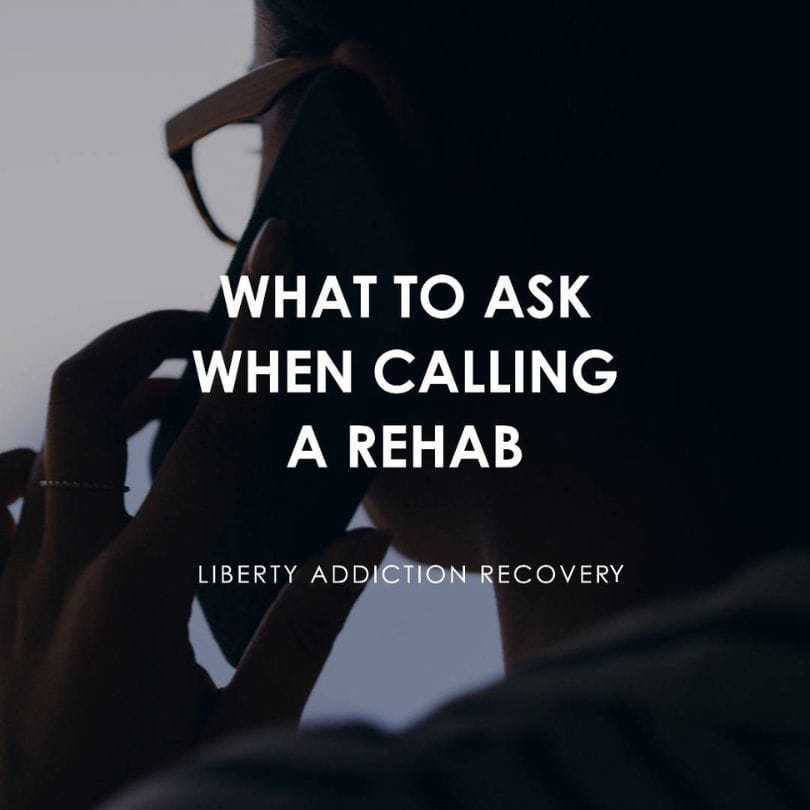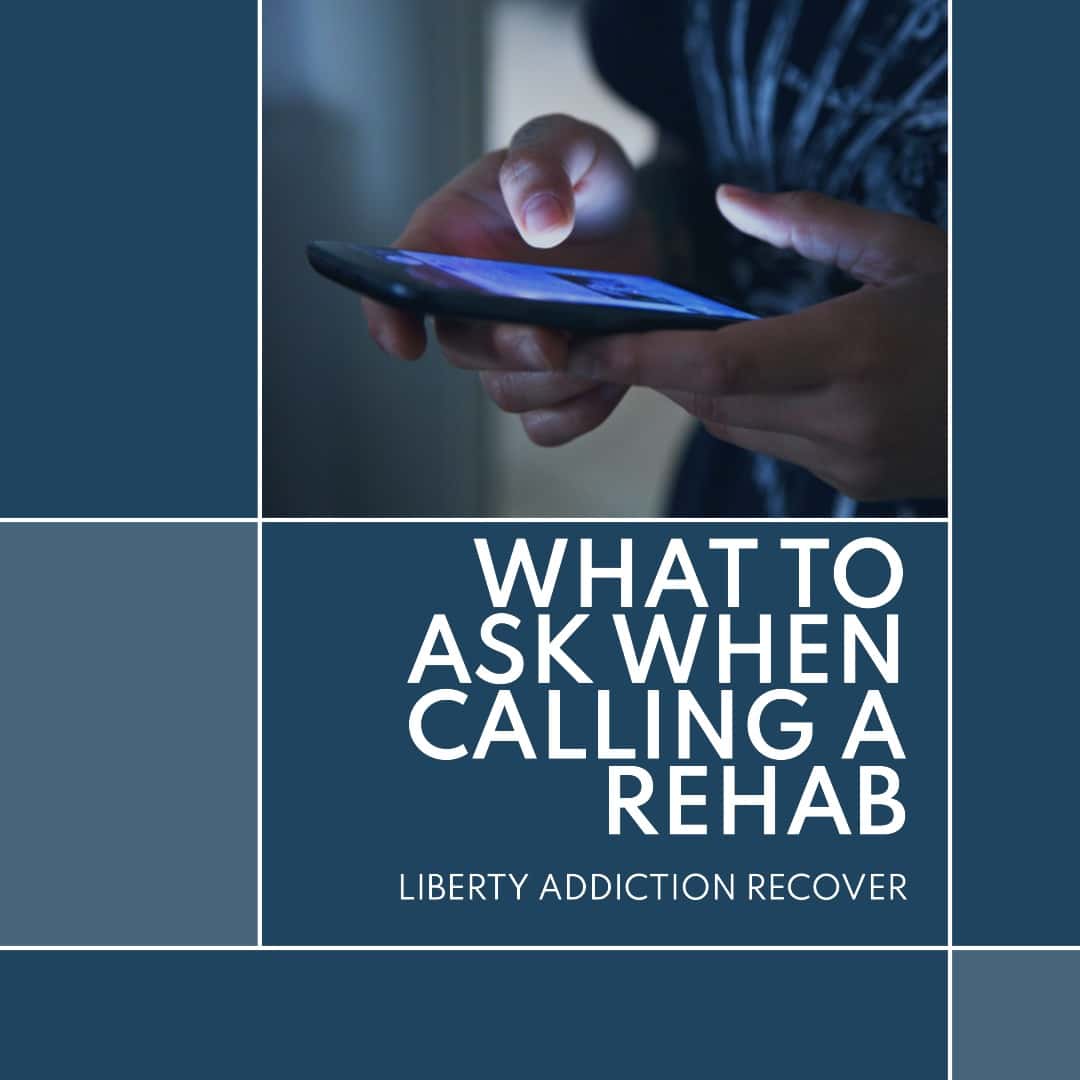
Embarking on the journey to sobriety is undoubtedly one of the most courageous decisions you can make. The path to recovery, though challenging, can be made smoother by equipping oneself with knowledge about Utah rehab facilities and their programs. As an experienced mental health therapist, I have been privy to countless stories filled with hope. But the common thread among the most successful recovery stories is knowledge.
If you, like many others, are considering rehab, it’s paramount to know the right questions to ask. This not only gives you clarity about the path ahead but also ensures that you choose a facility that aligns with your needs, preferences, and goals.
From my professional standpoint, having interacted with numerous individuals on the brink of making this life-altering decision, I understand the anxieties and uncertainties that can cloud one’s judgment. Here, I intend to provide a comprehensive guide on the pivotal questions you should arm yourself with when you pick up that phone to call a rehab in Utah. These questions are crafted considering the concerns, needs, and aspirations of individuals seeking a fresh start. By the end of this guide, you should:
- Grasp the Significance of Compassion: Understand why it’s crucial that your first interaction with a facility is steeped in empathy and understanding.
- Determine the Living Conditions: A sneak peek into where you’d be spending your days healing.
- Decipher the Day-to-Day: An insight into the routines, activities, and therapies that await.
- Navigate Financial and Insurance Queries: Ensuring that the path to recovery is as smooth as possible.
- Peek into the Therapeutic Interventions: From trauma to co-occurring disorders, how does the facility plan to address these?
- Understand Utah’s Unique Position: Why is Utah’s rehab landscape considered one of the best?
I invite you to take this journey with me, one section at a time, ensuring that you’re well-prepared to make one of the most significant decisions of your life.

What to Listen for When Calling Utah Rehab Facilities?
Compassion and Understanding
When you dial up potential Utah rehab facilities, the initial moments of the conversation can reveal a lot. It’s essential that the person on the other end speaks with genuine compassion and understanding. This initial interaction often sets the tone for your entire experience. In therapy, we often say that healing begins when someone feels heard, and this couldn’t be truer for those seeking help for addiction.
I recall a session with a patient who shared their first call experience to a rehab. Amidst tears, they mentioned how the mere act of being listened to with empathy made them feel valued and gave them the hope to carry on. An institution that prioritizes compassionate communication understands the profound emotional turmoil individuals face and is geared towards holistic healing.
Active Listening: More Than Just Words
Beyond just kind words, it’s pivotal for the representative to exhibit active listening. When they take the time to listen without interrupting, asking clarifying questions, and providing thoughtful responses, it indicates the facility’s dedication to individualized care.
Every individual’s journey into addiction is unique, as are the factors that precipitate it. A rehab that understands this will always prioritize listening. Drawing from my experience, the stories that individuals share are often laden with pain, confusion, and sometimes guilt. Having a patient listener during the initial conversation not only builds trust but also assures the individual that they’re not just a number.


What are the Living Accommodations Like?
A Serene Environment for Recovery
One’s surroundings play a crucial role in the recovery process. The environment of the rehab center in Utah you choose can either be a source of comfort or an added stressor. To set the right expectations, it’s vital to ask about the living conditions.
Nestled in places like the foothills of the Wasatch Mountains, some rehabs offer a serene, almost retreat-like environment. Such settings can provide the tranquillity essential for introspection and healing. In my years of practice, I’ve often heard recovering individuals reflect on the calming influence of nature. One of my patients, Sarah, once shared how the mere act of watching the sunrise over the mountains gave her a daily dose of hope and a fresh perspective.
Home Away from Home
It’s also essential to understand the physical attributes of the accommodations. Are the rooms shared or private? What amenities are available? The more comfortable and ‘at home’ you feel, the more conducive it is for recovery. During therapy sessions, I’ve often emphasized the importance of a safe, secure, and comfortable environment. It not only aids in physical relaxation but also provides a mental space free from external stressors, enabling one to focus solely on recovery.
How Many Residents Does the Facility Normally Have?
Personalized Care vs. Group Dynamics
When considering rehab centers in Utah, the number of residents a facility typically accommodates can influence the type of care you receive. It’s a balancing act between personalized attention and the benefits of group dynamics.
Facilities that keep a limited number of residents often emphasize individualized care. This ensures that every individual gets ample attention, facilitating tailored therapy sessions, and more one-on-one interactions with the staff. As a therapist, I’ve often seen the benefits of such focused attention.
The Power of Peer Interaction
On the other hand, having a larger group can offer robust peer support. Group therapies, sharing sessions, and communal activities can provide a sense of belonging. The journey to recovery can be lonely, and having peers who understand and share your struggles can be comforting. One of my group therapy attendees, Mia, found solace in shared experiences, often remarking, “Knowing I’m not alone makes the journey less daunting.”
What is the Daily Schedule Like for a Patient?
Structured Days: The Pillar of Rehabilitation
The daily schedule of a rehab is a testament to its approach and philosophy towards treatment. A well-structured day can instill a sense of purpose and discipline, essential components in the recovery journey. By inquiring about the daily routine, you get an insight into how your days will be spent and the activities you’ll engage in.
From my interactions with recovering individuals, I’ve come to realize the importance of structure in their lives. Mark, a former client, once said, “The predictability of a set routine provided a stark contrast to the chaos of my addicted life.”
Holistic Healing: Beyond Traditional Therapies
A rehab’s daily schedule often encompasses a mix of traditional therapies like counseling and newer, holistic approaches. Activities like yoga, meditation, and even art therapy can be crucial in addressing the psychological and emotional facets of addiction. Recreation therapy has been the turning point in many recovery journeys. I fondly remember Clara, a talented artist who rediscovered her passion for painting during her stay at rehab. For her, every brushstroke became a medium of expression and healing. I also remember, Beca who discovered a love for rock climbing while participating in our recreation therapy program. This activity taught her many valuable lessons about focus, discipline, and resolve.
It’s essential to find a rehab in Utah that offers a balanced mix of activities, catering to both the mind and the body. This ensures that while you’re addressing the physical aspects of addiction, you’re also given tools and techniques to manage stress, anxiety, and other emotional challenges.
What Modalities Does the Program Follow?
Evidence-Based Practices for Sustainable Recovery
Understanding the treatment modalities employed by rehab facilities is a crucial step in your journey to sobriety. A program that follows evidence-based practices backed by scientific research, is more likely to yield positive, sustainable results. These could include Cognitive Behavioral Therapy (CBT), Dialectical Behavior Therapy (DBT), Acceptance and Commitment Therapy (ACT), and Eye movement desensitization and reprocessing (EMDR). A definition of each of these modalities is provided below in the section below titled “Addressing the Root Cause.”
Individualized Approach for Unique Needs
While evidence-based practices are critical, a program that also considers the unique needs of each individual is equally important. Addiction is a complex, multifaceted problem that affects everyone differently. Therefore, the treatment approach should be tailored to address these individual differences.
For instance, Jane, another former client, had a history of trauma that was intrinsically linked to her substance abuse. A program that incorporated trauma-informed care alongside traditional therapies was instrumental in her recovery. The individualized approach provided her with the tools and support she needed to confront and heal from her past traumas, an essential aspect of her journey towards sobriety.
Are the Support Groups Interactive, and If So, How?
The Power of Shared Experiences
Support groups are an integral part of the recovery process, offering a platform for individuals to share their experiences, challenges, and triumphs. When asking about support groups at Utah rehab facilities, it’s crucial to understand the level of interaction and the methods employed to facilitate group dynamics.
In my experience, interactive support groups can significantly enhance the recovery journey. They provide a sense of community and shared purpose, crucial elements in overcoming addiction. One of my clients, Emily, found solace and strength in her support group. She often shared how the stories and experiences of others gave her the courage to open up and confront her addiction.
Techniques Employed to Foster Interaction
Interactive support groups employ various techniques to foster a sense of camaraderie and mutual support. This could include group activities, shared projects, or open discussions guided by a facilitator. The goal is to create an environment where individuals feel comfortable sharing their stories and providing support to others.
A memorable instance that comes to mind is a group art project organized during a support group session. Participants were asked to paint their journey to recovery, and the resulting artwork was truly moving. The shared experience of creating and then discussing the paintings fostered a strong sense of community and provided valuable insights into each individual’s journey.
What Levels of Treatment are Available?
A Comprehensive Approach to Rehabilitation Treatments
Inquiring about the different levels of treatment offered at Utah rehab facilities is crucial in understanding how the program can cater to your specific needs. A comprehensive rehab center should offer a range of treatments, from detoxification to residential and outpatient services, to support individuals at various stages of their recovery journey.
In my years of practice, I’ve witnessed firsthand the benefits of a multi-tiered approach to treatment. Many people start their journey with a medically supervised detox before transitioning into a 30-60 day residential program and eventually moving to outpatient care. This gradual step-down approach provides people with the necessary support and tools to successfully navigate the road to recovery.
What Happens After the Residential Program is Over?
Continuing the Journey: Aftercare and Support
Once the residential program concludes, the journey to recovery is not over. It’s essential to ask about the aftercare and ongoing support the rehab facilities offer. A robust aftercare and alumni program can significantly improve the chances of maintaining long-term sobriety.
In my clinical experience, aftercare is often the cornerstone of sustained recovery. I recall a client, Sarah, who attributed her success in staying sober to the aftercare support she received. The ongoing counseling, support groups, and check-ins gave her the tools to navigate challenges and stay committed to her sobriety.
Explore our aftercare and support programs
Bridging the Gap: Transitioning to Normal Life
Transitioning back to everyday life post-rehab can be daunting. That’s why it’s crucial to clearly understand how the rehab facility will assist in this transition. Will there be assistance in finding employment, housing, or further education? These factors are crucial in ensuring a smooth transition and preventing relapse.
Sober living facilities play a crucial role in supporting individuals as they transition from residential treatment to normal life. These facilities offer a structured, substance-free environment that helps residents maintain their sobriety while reintegrating into daily routines. They provide a supportive community of peers who are going through similar experiences, promoting accountability and encouragement in the recovery journey. In addition, sober living facilities often offer access to resources such as employment assistance, educational programs, and counseling services, which further aid in building a stable and fulfilling life post-treatment. With the guidance and support of dedicated staff, residents are equipped with the tools and skills they need to navigate challenges, build healthy relationships, and establish a solid foundation for long-term recovery.
One of my past clients, Robert, found the transition support provided by the rehab facility instrumental in his recovery. The counseling and practical assistance he received helped him rebuild his life, find a job, and reestablish relationships with his family.
How Will Trauma be Addressed Both Therapeutically and Medically?
Addressing the Root Cause: Therapeutic Interventions
Trauma often plays a significant role in addiction, acting as a catalyst or coping mechanism for individuals. When considering Utah rehab facilities, it’s crucial to understand how they address trauma therapeutically. Trauma-informed care, cognitive-behavioral therapy, and other therapeutic interventions should be integral components of the program.
In my practice, I’ve seen the profound impact of addressing trauma on recovery. Clients like Emma, who had experienced significant trauma, found healing through trauma-focused therapies that allowed her to process and make sense of her past experiences.
Addressing trauma requires a multifaceted approach, as it affects individuals physically, emotionally, and psychologically. Some of the therapeutic modalities typically used to treat trauma include:
- Cognitive-Behavioral Therapy (CBT): This approach helps individuals identify and challenge negative thought patterns related to their traumatic experiences, ultimately altering their reactions to them.
- Eye Movement Desensitization and Reprocessing (EMDR): A technique that helps individuals process trauma by stimulating the brain’s natural healing processes through guided eye movements.
- Exposure Therapy: This modality involves gradually exposing individuals to reminders of their trauma in a controlled and safe environment, ultimately reducing the distress associated with these reminders.
- Trauma-Focused Cognitive-Behavioral Therapy (TF-CBT): Specifically designed for trauma survivors, this modality combines elements of CBT with other trauma-specific treatments to address the unique needs of the individual.
- Narrative Exposure Therapy (NET): This approach involves helping individuals create a coherent narrative of their traumatic experiences, helping them process and make sense of their trauma.
- Mindfulness and Relaxation Techniques: Techniques like meditation, deep breathing, and yoga can help individuals develop awareness and regulate their emotional and physical responses to trauma.
- Acceptance and Commitment Therapy (ACT): A mindfulness-based approach that helps individuals accept their thoughts and emotions, promoting mental well-being and resilience against disorders like anxiety and depression.
Each individual’s experience with trauma is unique; therefore, the therapeutic approach should be tailored to meet their specific needs and circumstances.
Medical Support for Trauma-Related Symptoms
In addition to therapeutic interventions, medical support may be necessary to address trauma-related symptoms, such as anxiety, depression, or insomnia. A multidisciplinary team of medical professionals should work collaboratively to provide comprehensive care that addresses trauma’s psychological and physiological aspects.
Integrating medical and therapeutic interventions was a game-changer for Mike, a former client who struggled with PTSD and addiction. The combination of medication to manage his PTSD symptoms and therapy to process his traumatic experiences was pivotal in his recovery journey.
What Insurances Do You Accept and Can You Work with My Insurance on My Behalf?
Navigating the Financial Aspect of Recovery
The financial aspect of rehab can often be overwhelming, and understanding the available insurance options and financial support is crucial. When contacting Utah rehab facilities, don’t hesitate to inquire about the types of insurance accepted and whether the facility can work directly with your insurance provider on your behalf.
I’ve encountered many clients who were initially deterred by the financial aspect of rehab. However, they felt more at ease once they understood their insurance options and received assistance in navigating the financial process. For instance, a client, Daniel, was initially overwhelmed by the cost of treatment. However, once our administrative team worked directly with his insurance provider, we alleviated his financial burden, allowing him to focus solely on his recovery.
Liberty Addiction Recovery Centers accepts Select Health, Cigna, Aetna, EMI Health, United Health Care, U Health Plan, Molina, UMR, Medicaid, BlueCross, and BlueShield.
The Importance of Clear Communication
Clear and open communication with the rehab facility regarding your financial situation and insurance coverage is paramount. A reputable facility will be transparent about costs and will work diligently to provide you with the necessary information to make informed decisions about your treatment.
How is My Family Involved in the Treatment?
Family as a Pillar of Support
Family involvement can be a crucial component of the recovery process. When inquiring about Utah rehab facilities, ask how your family will be included in your treatment. Family therapy sessions, visitations, and educational programs are common ways rehab centers involve families in the recovery journey.
I’ve had the opportunity to facilitate numerous family therapy sessions where I’ve seen the transformative power of open communication and support. For example, a client, Michael, rebuilt his relationship with his father through family therapy, which became a cornerstone in his recovery.
Discover more about our family involvement programs
Education and Support for Families
Rehabilitation is not just a journey for the individual; it affects the entire family. Therefore, it’s important that the rehab facility provides educational resources and support for family members. This could include workshops, support groups, or individual counseling sessions designed specifically for family members.
A significant moment in my career was witnessing the healing process of a family who had been torn apart by addiction. Through educational workshops and support groups, they gained a deeper understanding of addiction and learned how to support their loved ones effectively.
How Will You Address Depression and Anxiety?
Integrating Mental Health Support in Addiction Recovery
Depression and anxiety often coexist with addiction; addressing these mental health concerns is crucial for a comprehensive recovery. When evaluating Utah rehab facilities, ensure that they have the necessary resources and expertise to treat co-occurring mental health disorders.
Qualified Professionals and Evidence-Based Therapies
The rehab facility should employ qualified mental health professionals and utilize evidence-based therapies to address depression and anxiety. Cognitive-behavioral therapy, medication management, and mindfulness-based practices are just a few examples of effective interventions.
One of my clients, John, had been suffering from depression for years before seeking treatment for his addiction. Through a combination of medication and cognitive-behavioral therapy, we addressed his depression and addiction, paving the way for a successful recovery.
Will I Have an Individualized Treatment Program?
Tailoring Treatment to Meet Individual Needs
When seeking treatment at Utah rehab facilities, asking if the facility offers individualized treatment programs is imperative. A one-size-fits-all approach is often less effective than a program tailored to meet each client’s unique needs.
In my years of clinical practice, I’ve seen the positive outcomes that result from personalized treatment plans. For instance, a client named Lisa benefited significantly from an individualized program that addressed her specific needs, ultimately leading to a successful recovery.
Learn more about our individualized treatment programs
The Process of Developing an Individualized Plan
Qualified professionals should conduct a comprehensive assessment to develop an individualized treatment plan. This assessment should consider various factors, such as the client’s history of substance abuse, mental health status, family dynamics, etc. This is typically conducted with an intake interview. Being completely honest during this process is essential as it will significantly affect your treatment plan.
A vivid memory from my practice involves a young man named Alex, who had been through multiple generic treatment programs without success. When he came to our facility, we conducted a thorough assessment and developed a customized treatment plan that addressed his unique challenges, ultimately leading to a meaningful recovery.
Do You Have a Physician on Staff and What Are Their Qualifications?
The Importance of Medical Oversight in Recovery
When calling Utah rehab facilities, it’s essential to ask if they have a physician on staff and the qualifications of their medical team. Medical oversight is crucial, especially during detoxification and for addressing co-occurring medical conditions.
The Role of a Physician in an Addiction Recovery Center
A physician plays a vital role in an addiction recovery center, from conducting medical assessments to managing withdrawal symptoms and co-occurring medical conditions. They collaborate with therapists, counselors, and other professionals to provide holistic care.
The presence of a qualified physician can make a significant difference in the recovery journey, as was the case with Emma, who had a complex medical history that required careful management during her treatment for alcohol addiction.
At Liberty Addiction Recovery Center, we are proud to have Dr. Joel Hanson, MD, as our in-house physician. With his extensive background in psychiatry and internal medicine, he brings a wealth of knowledge and expertise to our facility, ensuring that our clients receive the best possible care.
Dr. Hanson’s impressive career began with a dual-residency at the prestigious University of Utah, where he specialized in psychiatry and addiction medicine. His commitment to the field is evident through his numerous certifications and affiliations, including board certifications in Psychiatry and Addiction Medicine, as well as his status as a diplomat of ABPN (General Psychiatry) and ABPM (Addiction Medicine). In addition to his clinical work, Dr. Hanson has founded and operated a detox hospital served as the Chief Medical Officer at Altium Health, and directed the medical aspects at various establishments, including Ascendant Behavioral Health and multiple Treatment Centers. His passion for telemedicine has also been instrumental in providing vital health services to rural communities.
But what truly sets Dr. Hanson apart is his genuine devotion to witnessing the transformation of those he treats. He finds joy in seeing individuals progress towards happier and more fulfilling lives; this compassion and dedication make him a vital part of our team. Dr. Joel Hanson embodies the excellence we strive for at Liberty Addiction Recovery Center with his impressive credentials, vast experience, and heartfelt commitment to changing the lives of those struggling with addiction.
Why is Utah a Good Place to Attend Rehab?
The Tranquil Beauty of Utah
The serene and picturesque landscape of Utah provides a peaceful environment that is conducive to recovery. Nestled in the foothills of the Wasatch Mountains, our facility is a sanctuary that offers a respite from the chaos of addiction. Several cities in Utah hold annual National Recovery Days events. There is an enthusiastic, sober softball league and even two recovery-focused gyms.
One of the unique aspects of our Utah rehab facilities is the opportunity to incorporate nature into the recovery process. Clients can engage in outdoor activities and enjoy the breathtaking scenery as part of their therapeutic journey. Utah is the home to 5 National Parks and 46 State Parks. From snowboarding to water skiing, there is no shortage of outdoor activities for Utahns in sobriety.
Discover the beauty and benefits of our Utah location
Discover more about rehab centers in Utah
Do You Have a Thriving Alumni Program and What is it Like?
The Value of a Strong Alumni Community in Utah Rehab Facilities
A strong alumni program is a testament to the effectiveness of a rehab facility and provides ongoing support for individuals post-treatment. When considering Utah rehab facilities, ask about their alumni program and how it can benefit your recovery journey.
Activities and Support Offered by Alumni Programs
An alumni program at a rehab facility is designed to provide ongoing support for individuals who have completed their treatment program. It fosters a sense of community and connection among former patients, helping them continue their recovery journey together. Here’s what you can typically expect from an alumni program:
- Attend events like 12-step meetings, social outings, and sober softball.
- Support each other and share tips on how to navigate challenging situations.
- Engage in volunteer activities, giving back and helping others in their journey.
- Connect with a large community that understands where you have been and the challenges you face ahead.
By participating in these activities, individuals can strengthen their recovery, build lasting friendships, and find additional support outside the treatment center.
Conclusion – Calling Utah Rehab Facilities
Bringing It All Together
In conclusion, when calling Utah rehab facilities for residential treatment, asking the right questions is essential to ensure you find the right fit for your needs. Each question we’ve discussed aims to give you a comprehensive understanding of what to expect from a rehab facility.
Remember, recovery is a personal and unique journey. The right rehab facility will offer a holistic approach that addresses the addiction and the underlying mental, emotional, and social factors contributing to it.
Take the First Step Toward Recovery
Asking these questions is a crucial step in your journey to recovery. It empowers you to make informed decisions and find a rehab facility that aligns with your needs and goals.
Remember, our team of dedicated professionals is here to support you every step of the way. We are committed to providing you with the highest level of care and helping you regain control of your life.
Contact us today to start your journey towards recovery
The journey towards recovery may be challenging, but with the right support and guidance, you can overcome addiction and reclaim your life. Take that first step today!
FAQ – Calling Utah Rehab Facilities
- What questions should I ask when calling Utah rehab facilities for residential treatment?
- It’s important to ask about the living accommodations, number of residents, daily schedule for patients, modalities of the program, availability and interaction of support groups, levels of treatment, post-residential program protocols, trauma addressing methods, insurance acceptability, family involvement, handling of depression and anxiety, individualized treatment programs, and the qualifications of the physician on staff.
- Does the facility have a psychiatrist on staff and what are their qualifications?
- Yes, we have Dr. Joel Hanson, MD, a highly qualified psychiatrist with board certifications in Psychiatry and Addiction Medicine. Dr. Hanson completed a dual-residency at the University of Utah and has extensive experience in the field of addiction medicine, including founding a detox hospital and serving as the Chief Medical Officer at Altium Health.
- How does the facility handle trauma both therapeutically and medically?
- Our holistic approach embraces various evidence-based therapies ranging from individual counseling to group activities, addressing not only the physical dependencies but also the psychological, emotional, and social aspects of addiction. Our team of seasoned professionals and medical experts, including our on-staff physician Dr. Joel Hanson, are here to empower you to regain control of your life.
- How is family involved in the treatment process?
- Family involvement is a crucial aspect of our rehabilitation program. We understand the importance of family support in the recovery process and have designed our programs to incorporate family therapy and counseling to strengthen family relationships and foster a supportive environment for recovery.
- Does the facility offer any aftercare or alumni programs?
- Yes, we have a thriving alumni program that offers ongoing support for individuals post-treatment. Our alumni community is a platform for former clients to share their experiences, support each other, and give back to the community. The program includes various activities, support groups, and resources to assist individuals in their ongoing recovery journey.






